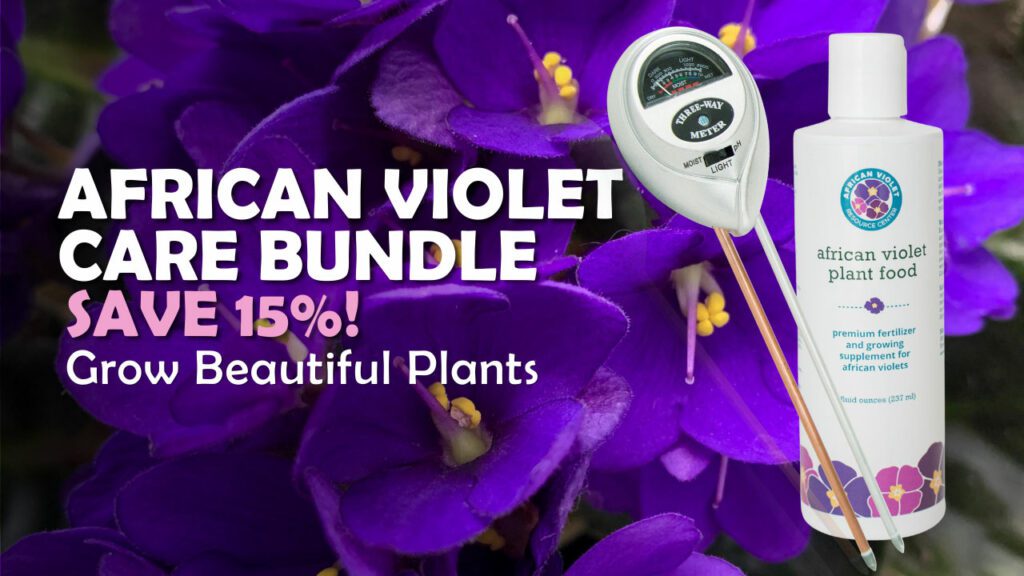Are African Violets Toxic to Cats? Here’s What You Need to Know
It’s a “tail” as old as time: you love your cat, but want to nourish your green thumb. The problem? Many beloved houseplants are toxic to cats and other pets. Even if your cat isn’t much of a nibbler, a single mishap can spell serious trouble. With symptoms ranging from upset stomach to death, it’s critical to understand the risk a plant poses to your pet before bringing it into your home.
We have a sneaking suspicion that you’re here to do your due diligence, so we’ll start with the good news: African violets are safe for your cat (woohoo!)
The ASPCA rates African violets as non-toxic to cats, dogs, and even horses! (Although, if you’ve got a horse eating your indoor houseplant, you’ve got bigger problems.) Now, even though taking a bite out of your violet doesn’t pose an innate threat to your cat, there are a few things you need to keep in mind.
Let’s take a closer look at everything you need to know for a happy cohabitation—for both of your fuzzy companions.
Are African Violets Toxic to Cats?
The short answer, no. In fact, your cat is probably more dangerous to your plant. There aren’t harmful chemicals that make African violets toxic to cats. However, if Garfield gets a mouthful, he could still exhibit symptoms of a mild illness. His sensitive stomach can get thrown off by too much of something unfamiliar. (Have you ever done a juice cleanse? You’ll know the feeling.)
If your cat seems a little out of sorts, he’s probably not feeling well. Don’t panic! Keep an eye on his condition, and give the vet a call if the symptoms persist or get worse.
Is Fertilizer for African Violets Toxic to Cats?
The real risk to your cat comes from any chemicals your plant might be treated with. While African violets are not toxic to cats, their fertilizer can be. Similar to the plant itself, fertilizer ingestion is generally a mild irritant. But, if ingested over a prolonged period of time, it can lead to serious gastrointestinal issues.
To be on the safe side, keep a close eye on your plant (especially the flowers, those are kitty delicacies). Familiarize yourself with your cat’s behavior so you can spot any variations in demeanor before they become a major issue.
Houseplant Pro Tip: If you buy your African violet from a grower, ask about the type of insecticide they use. While consumer-forward products generally don’t pose much of a risk, those used on a commercial scale are more likely to.
How Do I Keep My Cat Away From My African Violet?
One of the best ways to protect your cat is simply to keep him away from your houseplants. What’s that, you say? Cats don’t like following directions? Well, then, try a few of these timeless tricks.
1. Elevate and Separate
Prevent unwanted nibbles by keeping your African violet on a high shelf or cupboard. Make sure to check for any furniture your cat could climb on to reach it, and keep your plant happy by choosing a well-lit space.
2. Distract! Distract! Distract!
Sometimes your cat is just dining on your houseplant because he’s bored or curious. Try distracting him with a cat toy (feathers attached to metal springs work great) or a scratch pad filled with catnip.
3. No-Worry Nibbles
Give your plant-hungry cat something healthier to munch on. Catnip, silver vine, and cat thyme are all alternatives that are safe and healthy for your furry pal.
4. Divide and Conquer
We get it, cats are persistent. Sometimes the best you can do is keep your cat out of rooms that have plants in them. Make a sunroom or well-lit bedroom your houseplant oasis and keep kitty on the other side.
5. Call On “Foul” Play
Felines have very sensitive noses, and several smells will inspire your cat to abandon his plant-snacking mission. Try citrus peels, cayenne pepper, or diluted citrus oil. (Note: Citrus extracts are not safe for your cat.)
Know the Symptoms
Although your African violet is not toxic to cats, pets are experts at getting where they shouldn’t be. That’s why you should always be aware of the symptoms of poisoning; knowing what to look for could save his life.
The following symptoms indicate your cat has ingested something toxic:
- Vomiting
- Lethargy
- Diarrhea
- Drooling
- Loss of appetite
- Seizures or coma
The range of symptoms is why it is essential to know the toxicity of any plant you bring into your home. If your cat is showing any of these symptoms, or if you suspect his health is in danger for any reason, contact your vet or pet poison control hotline immediately.
Non-Toxic Plants for Cats
Want to start a whole menagerie of non-toxic plants? The following houseplants are widely recognized as feline-friendly.
- Baby Tears
- Spider plant
- Areca palm
- Boston fern
- Orchid
- Mosaic plant
- Ponytail palm
Check out this toxic/non-toxic plant list from the ASPCA for more plants toxic to cats and plenty that are safe for kitty.
Do you have another question about African violets and pet safety? Let us know in our Facebook group.
Join the African Violet Club!
Whether you’re just starting out or are a seasoned grower, African Violet Resource Center has everything you need to help your plant grow vibrant and strong. Explore our other articles, visit our online shop, and connect with other houseplant lovers in our Facebook group to learn everything you need to know about this rewarding hobby!
More Great African Violet Resources
7 Reasons You Need an African Violet Houseplant NOW!
Bottoms Up! The Best African Violet Watering Methods for a Happy Houseplant
Making Sense of African Violet Potting Mix (And How to Make it Too!)







